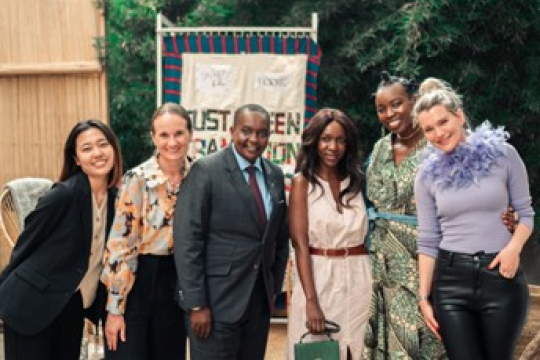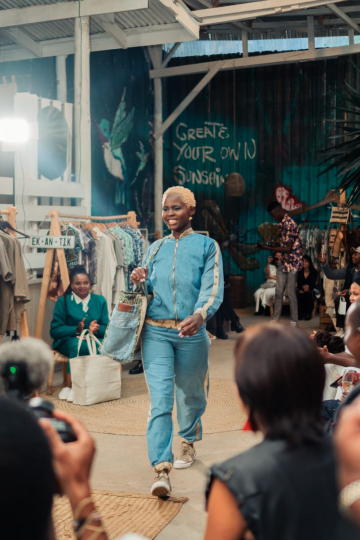The fashion industry is the second largest polluter in Africa. Hence, it’s necessary to address the problems with unsustainable fast fashion. This was highlighted at a panel discussion that took place during the Eco Fashion Week in Kenya. Richard Mulwa, Center Director of EfD Kenya was one of the participants in the panel.
“When Kenyans think about fashion, they typically envision catwalks, designer bags, and shoes and not sustainable, just, and ethical fashion,” said Richard Mulwa.
“We need to give more visibility to the fashion industry’s environmental impact. It is essential to allocate funds and research to this sector to raise awareness and emphasize the importance of a just transition in the fashion industry,” he said.
Principles of sustainable fashion
Some people in Africa have quite sustainable habits when it comes to fashion: repairing clothes when they are torn and not buying new clothes very often. However, that’s not the case everywhere and the panel discussed that more needs to be done. It is important that consumers use what's already in their closets and avoid unnecessary spending. Other options such as swapping clothes were also mentioned.
Just fashion is characterized by low carbon emissions, efficient use of resources, and social inclusivity, that is, leaving no one behind and offering fair working conditions.
A great responsibility lies within the fashion industry. The Afrowema brand was among the attendees who demonstrated a commitment to sustainable fashion. They create clothes from used fabrics.
Creating fashion that's inclusive
A representative for Nashipai, a brand specializing in leather bags, emphasized their commitment to inclusivity in certain areas while facing challenges in others. On one hand, the brand promotes inclusivity by employing differently-abled individuals, such as deaf people, and empowering them to create high-quality products for international competition. However, social inclusivity can be challenging in terms of affordability. In addition, the sourcing of plant-based fabrics is expensive. Consequently, the brand grapples with the task of producing bags that are accessible and affordable for everyone and not considered luxury items for the few.
The importance of stakeholder dialogue was emphasized as the solution to address issues in Just Fashion.
Some of the concerns on inclusivity were about fair compensation for artisans. This calls for broad participation by the public in the fashion conversation, ensuring affordability in fashion, and integrating fashion into the realm of research.
The future of the Kenyan fashion industry
Belinda Smetana, the founder of Eco Fashion Week Africa and Sustainable Fashion Talks, hopes to see a growing number of individuals becoming influencers in sustainable fashion.
Katrin Aidnell, an environmental and climate change specialist, desires to see an increase in the availability of affordable, sustainable fashion brands.
Cindy Kwak, representing the Nashipai brand, expresses a desire for a better supply of raw materials that are both ethically processed, affordable, and accessible for use by fashion brands.
Richard Mulwa, hopes for increased visibility for just fashion and commits to conducting research in the fashion industry.
The event took place at the Artisanal Gallery on November 23rd, 2023. The program included a variety of activities, with a focus on a panel discussion moderated by Anyiko Owoko a Kenyan media and PR personality.
By: Jane Maina

